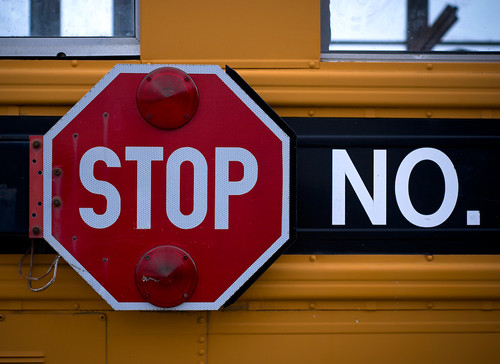 You are sitting in a room with some colleagues or friends, having a nice relaxing discussion about work, or politics, or college football. Before you know it, some innocuous disagreement in principle or practice has evolved into a knock-down, drag-out heated debate. The room's net blood pressure rises. What happens from there is, more often than not, highly unproductive.
You are sitting in a room with some colleagues or friends, having a nice relaxing discussion about work, or politics, or college football. Before you know it, some innocuous disagreement in principle or practice has evolved into a knock-down, drag-out heated debate. The room's net blood pressure rises. What happens from there is, more often than not, highly unproductive.
As long as we all have opinions, we will always run the risk of disagreement. If you live on planet earth and interact with others, you will at some time or another be faced with a similar scenario. However, moments like these can provide us with a great opportunity for learning and growth. They can provide us with the potential for open dialogue and depth of understanding.
If you can check your ego at the door.
When we find ourselves knee-deep in disagreement, how can we turn it into an opportunity for discussion and dialogue instead of diatribe and derision?
We see it time and time again. When challenging discussions take place on difficult issues, it becomes emotional. You see it on the floor of Congress. You see it in classrooms and in continuing education. Worst of all, you see it in seemingly harmless discussions with friends and family.
These discussions rarely flare out of control because of "the evidence". That's not usually the problem. It is our belief systems and self image, our perception of the evidence, that creates the emotion. Before long, our discussion - the exchange of ideas - degrades into an argument - an exchange of ignorance.
We repeat our viewpoint. We say it louder. We speak more forcefully. We stand at the lectern and use phrases like "in my experience" or other phrases that attempt to make us more credible. And oftentimes, we stop listening. We speak to hear ourselves speak. We defend our beliefs. We sweat. We feel ourselves immersed in the fight or flight response. We are the sage on the stage, and we are right because of it.
All the while, we are not only losing the battle, but the war as well.
I am reminded of this every time I step in front of a patient, or a classroom of 40 DPT students, or a ballroom of 400 conference attendees. Debates may ensue, but it can be the catalyst for growth. Dialogue is important, but it requires engagement and vulnerability - along with a dose of courage and character.
As Stephen Covey noted in "The Seven Habits Of Highly Effective People", "Seek first to understand, then to be understood". As an example, I may be in front of a group of students to "teach", but my real goal is to understand. When the going gets tough, and the questions and diatribe fly as they will, "seeking to understand" might be one of the most difficult things to do. But you owe it to yourself and to the other participants to make the effort.
I'll be the first to say, it's not easy. Sure, it sounds good on paper, but it can be pretty tough when you are in the midst of it. It will always be easier to use authority or experience as a means of demanding respect before giving it. The debates can and will be tough. We need to challenge ideas. With that said, effective dialogue - and real solutions - will arise while we continue to engage each other openly. If we can do so, we have the potential for growth and learning for all who participate - self included.
Isn't that what we really want with our friends and family? Our colleagues and peers? Our patients and clients?
Photo credits: Pen Waggener
 "Running Injuries: Etiology And Recovery- Based Treatment" (co-author Bridget Clark, PT) appears in the third edition and fourth editions of "Clinical Orthopaedic Rehabilitation: A Team Approach" by Charles Giangarra, MD and Robert C. Manske, PT.
"Running Injuries: Etiology And Recovery- Based Treatment" (co-author Bridget Clark, PT) appears in the third edition and fourth editions of "Clinical Orthopaedic Rehabilitation: A Team Approach" by Charles Giangarra, MD and Robert C. Manske, PT.
 Allan Besselink, PT, DPT, Ph.D., Dip.MDT has a unique voice in the world of sports, education, and health care. Read more about Allan here.
Allan Besselink, PT, DPT, Ph.D., Dip.MDT has a unique voice in the world of sports, education, and health care. Read more about Allan here.
 Top 5 finalist in three categories: "Best Overall Blog", "Best PT Blog" and "Best Advocacy Blog".
Top 5 finalist in three categories: "Best Overall Blog", "Best PT Blog" and "Best Advocacy Blog".